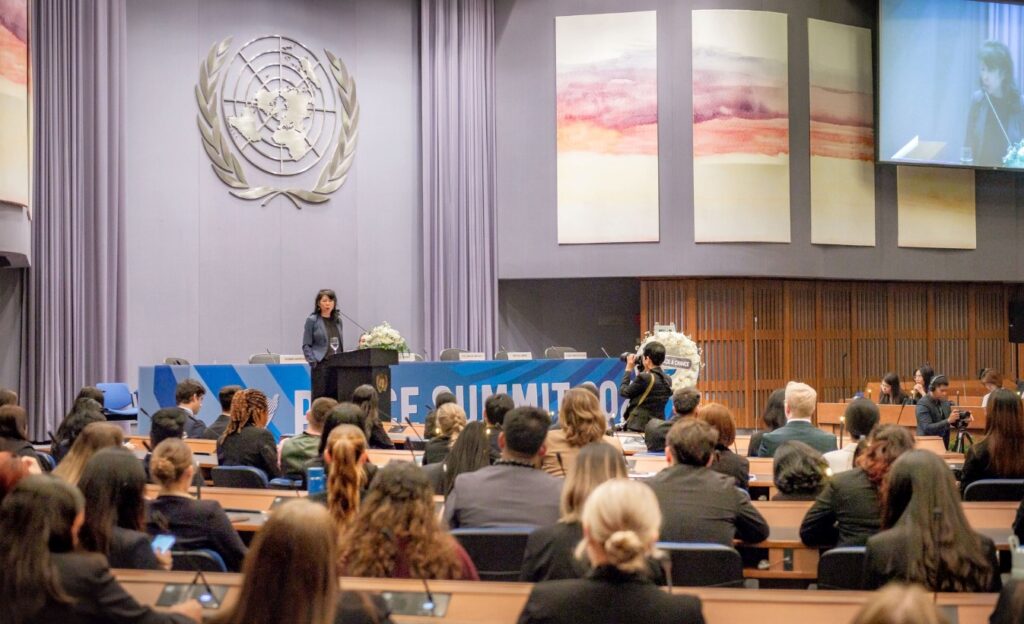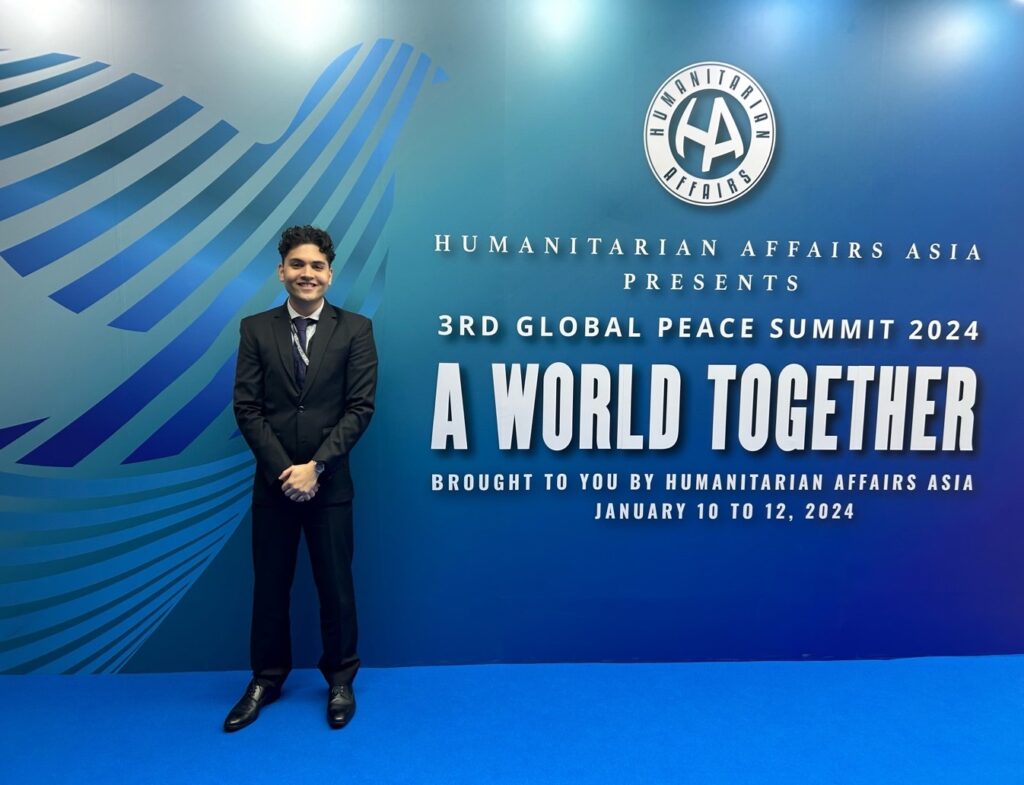Deepening Perspectives on Peacebuilding: Insights from the 3rd Global Peace Summit
April 2, 2024
The 3rd Global Peace Summit, convened at the prestigious United Nations Building in Bangkok, welcomed a diverse range of international delegates. The three-day summit commenced on 10th January 2024, and opened with the theme “Bridging Divides, Tools and Tactics for Successful Peacebuilding”, highlighting the collaborative efforts needed to create a harmonious world. By uniting perspectives from various sectors, the summit underscored the complexity of achieving global peace. It showcased the essential, concerted actions required to navigate the multifaceted peacebuilding landscape.
The summit harnessed a range of emotions, channelling them to underscore the critical objectives of peacebuilding. It became a platform where delegates, imbued with inspiration, learnt about how to advance peace building within their respective communities. This gathering was notable for its inclusivity, drawing peace advocates from across the world. Additionally, the participation of government officials, academics, and social workers added depth to the discussions, showcasing a unified drive to explore and implement peacebuilding policies both in theory and in practice.
The following speakers are among many at the conference who resonated deeply through the sharing of their personal experiences:

Loung Ung delivering her heartfelt words (Source: Author’s own)
Loung Ung’s poignant presentation as a survivor of the Cambodian Genocide captivated attendees with its raw intensity. Ung’s narrative transcended mere historical recounting, delving into the profound psychological and societal impacts of conflict. Her emphasis on the imperative of historical acknowledgment to prevent future atrocities underscored the crucial role of collective memory and trauma-informed strategies in the peacebuilding process.
(Watch: https://youtu.be/uNaUeDMriDo?feature=shared)

Hassan Akkad delivering his motivational speech (Source: Humanitarian Affairs Asia)
Hassan Akkad, sharing his journey as a Syrian filmmaker and refugee rights activist, underscored the media’s power in peacebuilding. He advocated for empowering refugee storytellers to share their narratives, fostering global empathy and understanding. Through his personal anecdotes of struggle and loss he faced in his own refugee journey to the UK, Akkad’s experience highlighted storytelling’s capacity to humanise complex issues and bridge community divides.
(Watch: https://youtu.be/WNFLzv4mTsM?feature=shared)

Antoinette Mutabazi delivering her inspiring story (Source: Humanitarian Affairs Asia)
Antoinette Mutabazi’s heartfelt recounting of her experiences during the Rwandan Genocide served as a powerful testament to human resilience and the transformative power of forgiveness. Her narrative underscored the critical roles of empathy and collective healing in rebuilding efforts. The impact of her story was heightened by her vivid descriptions of violence and unimaginable suffering, which starkly contrasted with the theme of forgiveness, making Mutabazi’s account all the more compelling. Her insights into the Rwandan reconciliation process also highlighted the significance of community dialogue in establishing sustainable peace.
(Watch: https://youtu.be/H2I8NUWogzU?feature=shared)
The discussions at the summit regarding the pivotal role of peace ambassadors broadened the scope from individual stories to a shared obligation in fostering peace. This shift underscored the notion that achieving peace is not a passive occurrence but a continuous, active pursuit. It necessitates a comprehensive strategy that includes education, empathy, and active advocacy.
A notable segment of the summit was dedicated to examining the critical role that education plays in the realm of peacebuilding. Motivational speakers highlighted education as a powerful mechanism for fostering understanding, tolerance, and critical thinking—skills indispensable for nurturing a culture of peace for forthcoming generations.

Singapore delegation photo (Source: Cumulative efforts from the delegation)
In summary, the 3rd Global Peace Summit acted as a significant reminder of the continuous global necessity for robust peacebuilding initiatives. The amalgamation of personal experiences and collective wisdom offered inspiring motivation for all attendees to partake in peace-promoting actions. The summit succeeded in enriching the participants’ comprehension of the complexities involved in achieving and maintaining peace, inspiring a collective resolve to strive for a more harmonious and equitable world.

Photo at the entrance of the United Nations Building at Bangkok (Source: Author’s own)
This article was written by third-year Political Science Student, Ethan Naidu, representing the Faculty at the 3rd Global Peace Summit, jointly supported by FASS and the Political Science Department.

